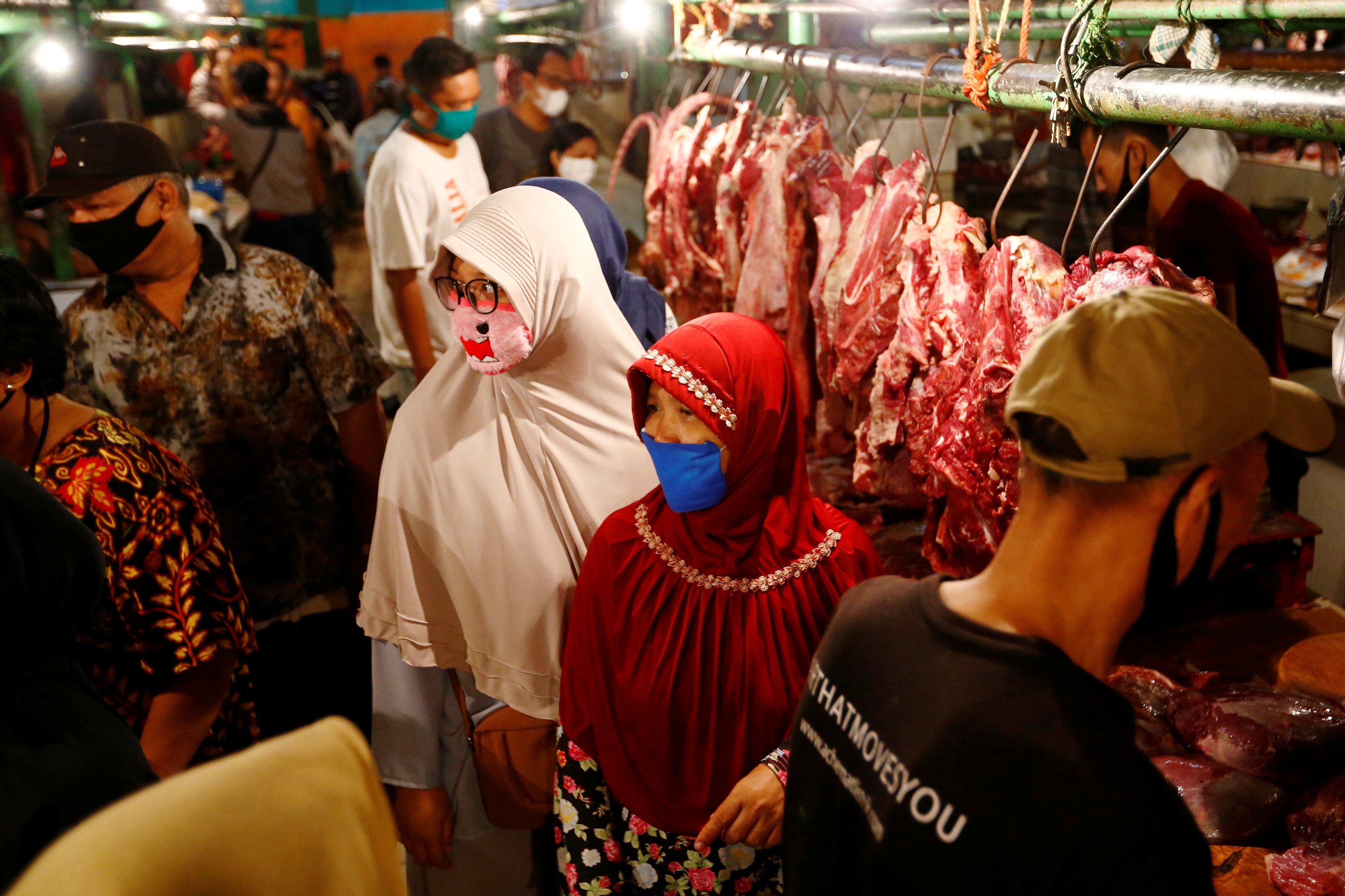Indonesia becomes an epicenter: Indonesia, the world's fourth most populous country, is now considered an epicenter of the pandemic, after it suffered its biggest daily surge in cases Thursday with over 900 new infections. The country of 260 million has the largest outbreak in Southeast Asia, recording about 20,000 cases and 1,300 deaths, though a recent study suggested that as few as 2 percent of the country's coronavirus infections may have been reported. When pressed on why Indonesia is experiencing a surge in cases while the curve appears to be flattening in neighboring countries, Indonesian health authorities blamed the public's flouting of social distancing guidelines. But critics say the government has sent wishy-washy messages on how to stop the disease's spread, as demonstrated by the fact that only four of Indonesia's 34 provinces have applied widespread social-distancing restrictions. Meanwhile, as the country's 225 million Muslims prepare to celebrate the end of Ramadan this weekend, popular markets have been overwhelmed by shoppers buying food and clothing, with little guidance or enforcement of large-scale social distancing measures. Indonesia's public health system is grossly underfunded, and experts warn that given the shortage of hospital beds, medical equipment and staff, the situation could deteriorate fast in the coming weeks.
Ethiopia to the rescue: Addis Ababa, Ethiopia's capital, has emerged as a critical transit hub for life-saving medical equipment sent to Latin America and the Caribbean. Why? The recipient countries say the stuff doesn't get stolen there the way it does when it goes through the US or Europe. Consider that authorities in the northeastern Brazilian state of Maranhão, one of the country's poorest and a major center of outbreaks in the Amazon, claim that two crucial shipments of respirators from China were recently confiscated during refueling stops in Europe and the US, creating a dearth of medical supplies as Brazil struggles to contain one of the world's worst outbreaks. Meanwhile, officials in the country's biggest city São Paulo, as well as Barbados, have reported similar instances of resource hijackings in recent weeks, and are now opting to have equipment cargos refuel in Ethiopia rather than Europe and the US. This is the latest example of cooperation among the world's developing countries during the coronavirus pandemic as many world leaders have come under fire for bungling both the national and global response to the crisis, leading – at least in some cases – to otherwise avoidable deaths and economic pain.
Sex in a pandemic: Governments have issued all sorts of guidelines on how the public should conduct itself during the coronavirus pandemic. Stay healthy. Eat well. Separate work life from playtime. Now, they are also weighing in on our sex lives, offering guidelines for how people should approach intimacy under various degrees of lockdown. Health officials in New York City and Los Angeles have offered a no-nonsense approach to sex in quarantine: "You are your safest sex partner," says a slogan touted by both cities, clearly encouraging masturbation. In Washington DC, meanwhile, the mayor's office cautioned against engaging in sex if either partner is feeling under the weather: "Sex and close contact will be waiting for you when you are feeling better," the office reassured residents. Unsurprisingly, many European countries adopted a laxer approach to sex in lockdown. After the Dutch Health Institute encouraged singles to find a seksbuddyfor comfortduring quarantine, a health official was forced to clarify that this should be restricted to people who were already acquainted with one another but don't live together. The Danish health ministry, for its part, went a step further in giving the green light to casual sexual encounters: "We are sexual beings, and of course you can have sex in this situation," one senior official said.
More For You
Most Popular
With the US leading production and China driving new reactor development, Bank of America breaks down the who, what, where, when, and why behind nuclear’s return. Stay ahead of global energy trends with Bank of America Institute.
Chris, an Army veteran, started his Walmart journey over 25 years ago as an hourly associate. Today, he manages a Distribution Center and serves as a mentor, helping others navigate their own paths to success. At Walmart, associates have the opportunity to take advantage of the pathways, perks, and pay that come with the job — with or without a college degree. In fact, more than 75% of Walmart management started as hourly associates. Learn more about how over 130,000 associates were promoted into roles of greater responsibility and higher pay in FY25.
Last week, at the Munich Security Conference, a group of global technology providers, including Microsoft, announced the Trusted Tech Alliance — committed to shared, verifiable principles for trusted, transparent, and resilient technology across borders. At a moment of economic volatility and zero-sum technological competition, countries and customers are demanding greater accountability from technology providers. The Alliance addresses this by bringing together companies from across Africa, Asia, Europe, and North America around shared commitments: transparent governance, secure development practices, supply chain oversight, open digital ecosystem, and respect for the rule of law — ensuring the benefits of emerging technologies strengthen public trust while driving job creation and economic growth. Explore the Trusted Tech Alliance here.
